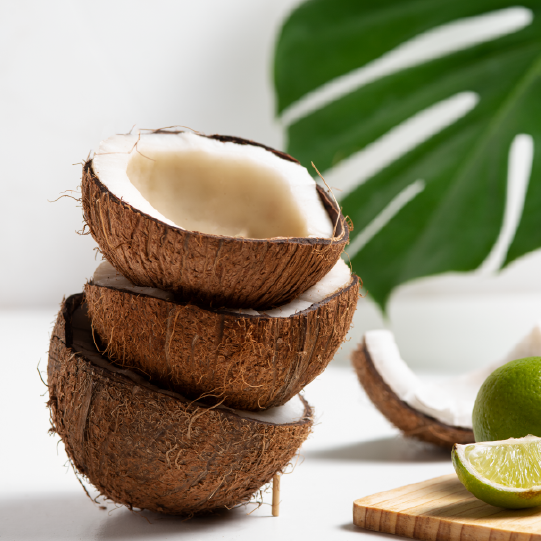Some time ago, this ingredient became very popular in the world of cosmetics, and in this article, we want to tell you a little about the famous niacinamide.
Also called vitamin B3, it is a true skincare superstar.
- Anti-aging and wrinkle-smoothing properties: With age, our skin tends to slow down in many ways. One of these is the slower production of important proteins, such as keratin, filaggrin, and involucrin. Reduced amounts of these proteins result in poorer skin structure, reduced skin elasticity, and more wrinkles. Studies show that niacinamide can increase collagen production, as well as the production of these three important proteins. This means better skin structure and fewer wrinkles.
- Skin lightening properties: Hyperpigmentation or brown spots are really stubborn, and honestly, it can be very difficult to make them disappear with topical products alone. What you can expect is some fading, and niacinamide is a great ingredient to help with that. Additionally, niacinamide as a skin lightener works differently than most others. It suppresses the transfer of melanosomes (tiny spheres that carry melanin pigment) from melanocytes (skin cells that produce melanin) to keratinocytes (skin cells in the top layer of the skin), while most other skin lighteners block an enzyme called tyrosinase (which plays a major role in melanin production). So, if you want to mount a multi-pronged frontal attack on brown spots, you can combine a niacinamide treatment with tyrosinase inhibitors like vitamin C, arbutin, or kojic acid.
- Barrier repair functions: The skin barrier is the outer layer of the skin that is incredibly important for keeping skin hydrated and healthy. The material between skin cells consists primarily of free fatty acids, cholesterol, and ceramides. The amount and structure of these determine how healthy the skin barrier is. Studies have shown that 2% niacinamide can increase the synthesis of free fatty acids, cholesterol, and ceramides, resulting in a healthier and stronger skin barrier, decreased transepidermal water loss, and better-hydrated skin.
- Anti-acne properties: Although niacinamide is not considered a star anti-acne ingredient, it does have sebum-regulating and anti-inflammatory properties.
- Other highlights: Studies show that vitamin B3 can help accelerate epidermal cell growth (which slows with age), can aid in wound healing, can smooth the skin's structure, and also has antibacterial and photoprotective properties. It may also be helpful for rosacea and atopic dermatitis, likely due to its anti-inflammatory properties.
Now that you know more about this famous ingredient, we invite you to incorporate it into your daily skincare routine.


